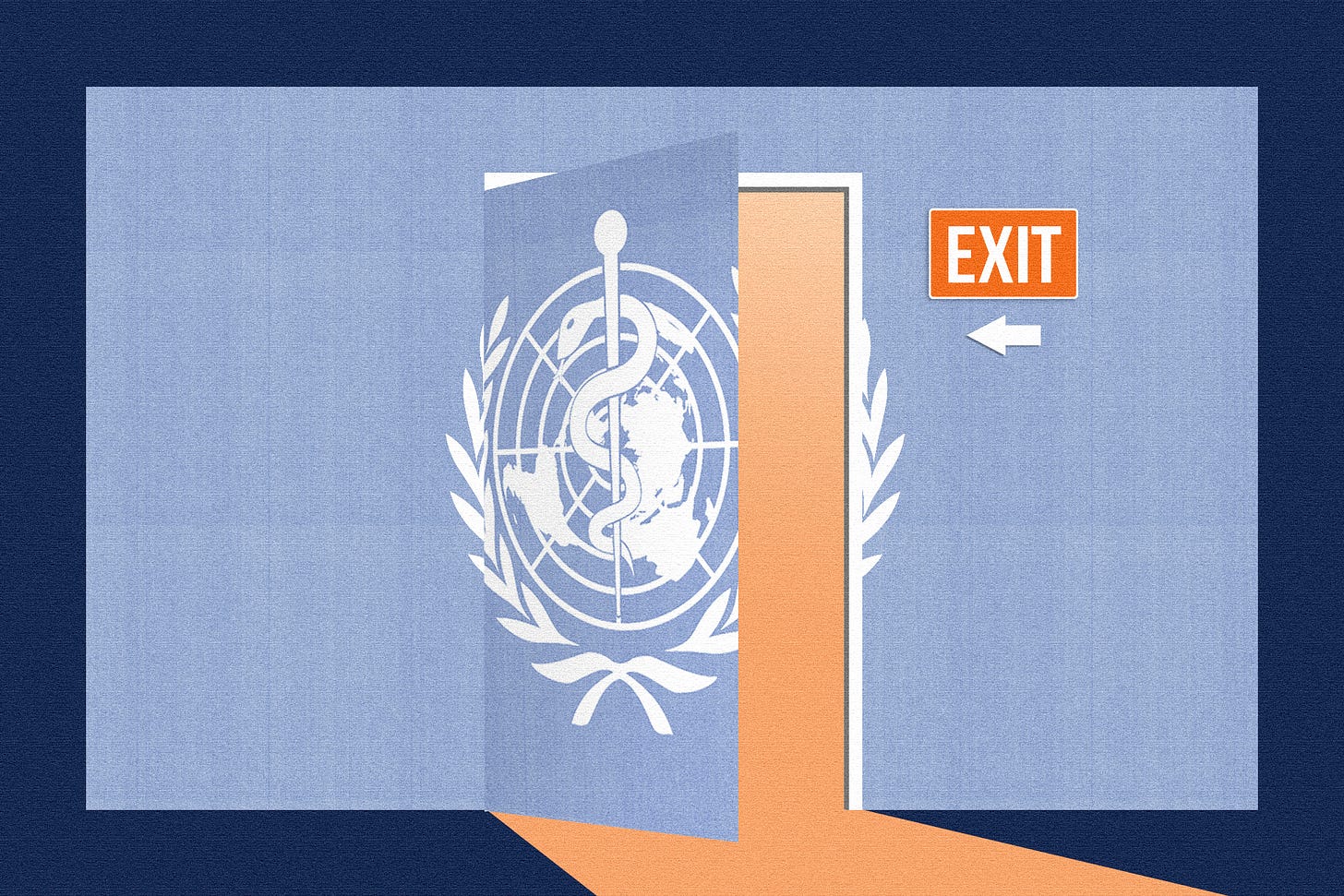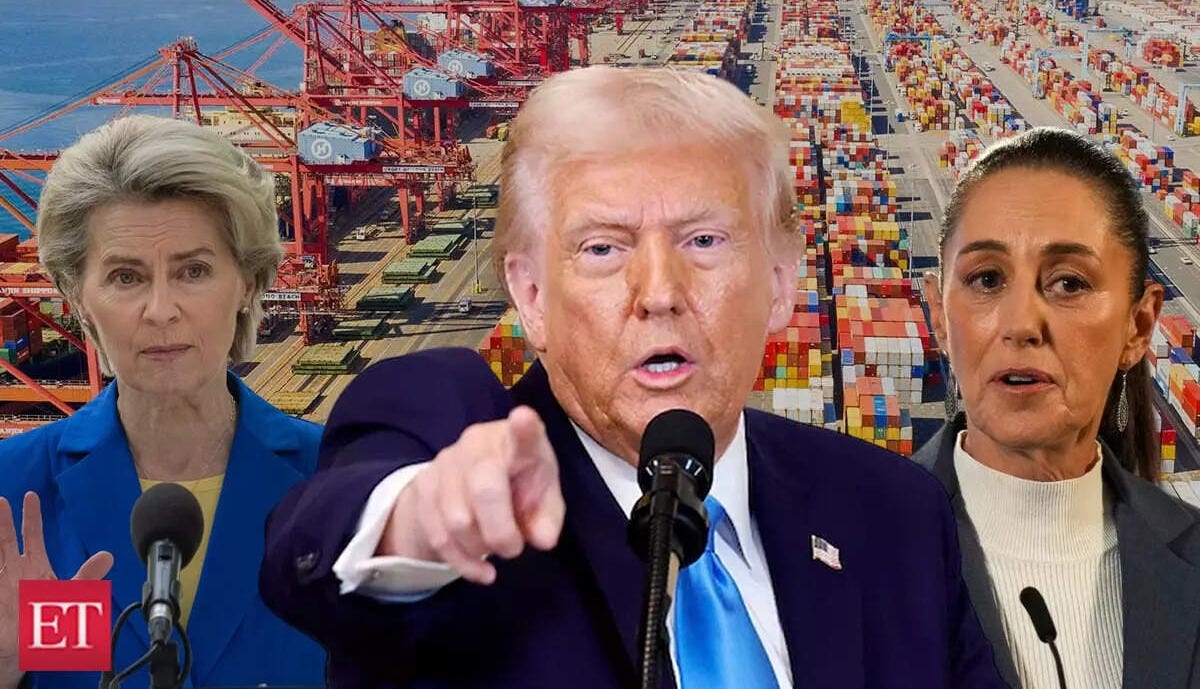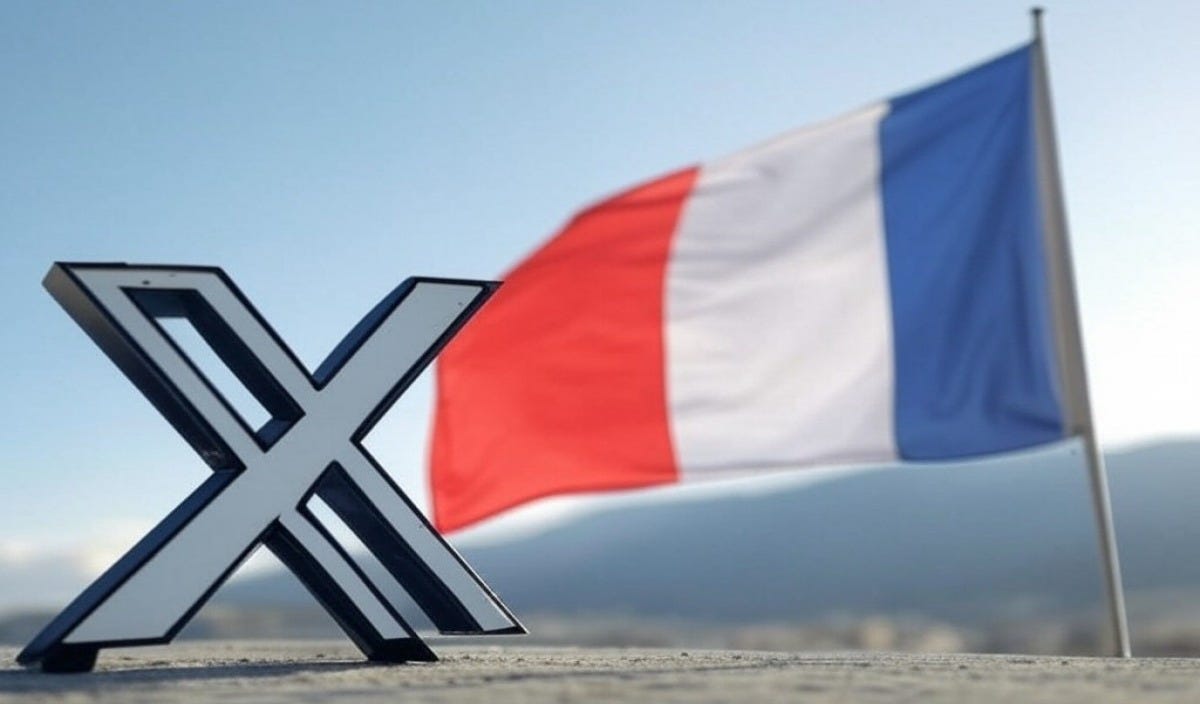Good morning, it’s Monday, July 14th. In today’s news, Mark Carney’s conflict screen spans over 100 companies, Canada needs to rethink global health alliances amid WHO turmoil, Smedley Butler's timeless warning about war, profit, and the business of empires, Trump hits the EU and Mexico with 30% tariffs, and much more.
First time reading the daily blend? Sign up here.
Mark Carney’s Conflict Screen Spans Over 100 Companies—And Canadians Are Supposed to Trust It
Canada’s new prime minister is walking into office with one of the largest conflict-of-interest screens in the country’s history. Mark Carney has formally agreed to recuse himself from discussions involving more than 100 companies, including Brookfield Asset Management and Stripe — two firms where he previously held high-ranking positions.
Carney served as chairman of Brookfield Asset Management, a $1 trillion investment giant, and sat on Stripe’s board. Many of the companies under scrutiny operate in industries directly affected by federal policy, including clean energy, real estate, and infrastructure. He has also personally raised capital for Brookfield’s renewable energy funds — the same sectors he now oversees as prime minister.
The ethics screen — set up with the Office of the Conflict of Interest and Ethics Commissioner — is so expansive it’s raising eyebrows among ethics experts. Ian Stedman, a former Integrity Commissioner staffer and now a professor at York University, called it “the largest scope I’ve ever heard of.”
Carney’s chief of staff and the Clerk of the Privy Council will manage the screen, but even they admit it will be difficult to enforce. If a discussion touches on one of the 103 companies, Carney must recuse himself — but only if he’s made aware in time. Otherwise, it falls to him to self-police.
And even then, Carney is still allowed to participate in decisions that impact these companies if the issue also affects a broader group — unless their interests are “disproportionate.” What qualifies as disproportionate? No one seems to know. It’s a legal grey zone that leaves the door wide open for interpretation — and abuse.
This isn’t just a paperwork issue — it’s a fundamental question of public trust. Carney has made bold promises to turn Canada into a clean energy superpower. But how can Canadians trust those promises when the firms he used to lead stand to benefit from government decisions?
Westinghouse — a nuclear company owned by Brookfield — was even name-dropped by Carney during an election debate. He now must stay out of files related to it, even though he used it to bolster his energy credentials.
This is a test not just for Carney, but for the ethics commissioner and Canadians. Because no matter how many screens are in place, power still demands accountability. Source.
A Fork In the Road: Rethinking Global Health Aliances Amid WHO Turmoil
As the World Health Organization (WHO) celebrates the recent adoption of the world’s first pandemic treaty, the global health landscape faces a critical juncture. The United States, citing concerns over corruption, special-interest influence, and a shift away from its core mission, has withdrawn from the WHO and proposed an alternative global health framework focused on holistic, nation-driven health promotion. This decision signals a profound debate about the future of global public health and poses a key question for Western nations, including Canada: Which path should they follow?
The WHO has long been the centrepiece of international health cooperation, credited with saving millions of lives since its founding in 1948. Yet the agency now finds itself heavily reliant on earmarked funding from private donors and alliances, like the Gates Foundation and GAVI, which prioritize pandemic preparedness, vaccine development, and digital surveillance—often at the expense of strengthening foundational health systems.
Critics argue that this donor-driven model exaggerates the risks of speculative pandemics, diverting billions toward expensive vaccine programs and surveillance technologies while neglecting persistent, high-burden “slow pandemics” such as tuberculosis, malaria, and HIV—diseases linked closely to poverty, malnutrition, and weak local health infrastructure. The Trump administration’s “Make America Healthy Again” agenda, emphasizing nutrition, sanitation, and addressing social determinants of health, contrasts sharply with WHO’s current pandemic-centric approach.
With the US exit, concerns rise about a power vacuum that could empower authoritarian states like China, which has recently increased its voluntary funding to WHO and is viewed as exerting undue influence. However, some experts suggest the disruption may force long-overdue reforms by exposing inefficiencies, duplication, and corporate influence within WHO programs.
For Canada and other Western countries, the choice is clear but complex: continue supporting a centralized, donor-influenced global health bureaucracy with questionable priorities, or chart a more sovereign course that invests in strengthening domestic and regional health systems, prioritizes holistic health promotion, and fosters international cooperation outside the existing WHO framework. Following the US example could empower Canada to regain control over its health policy, reduce reliance on international bodies prone to politicization, and focus on practical, sustainable health improvements tailored to local needs.
Who Really Wins in War?
"War is a racket," wrote General Smedley Butler—two-time Medal of Honor recipient and one of the most decorated Marines in U.S. history. And he wasn’t speaking as a pacifist. He was speaking as a soldier who saw firsthand how the blood of young men became the currency of elite profit.
In War is a Racket, Butler dismantled the patriotic illusions that surround war and exposed its true beneficiaries: bankers, weapons manufacturers, and industrial tycoons. According to him, the average citizen sees war as a necessary defence of freedom, but in reality, it's an elaborate con—a violent business venture cloaked in flags and slogans.
He begins by defining war as a "racket"—something conducted for the benefit of the very few at the expense of the many. It’s not about national defence. It’s about profit margins. Industries like oil, steel, banking, and munitions used World War I to generate unprecedented wealth, while ordinary Americans were left with the bill—and the bodies.
Then he names names. DuPont, U.S. Steel, and Bethlehem Shipbuilding raked in millions—some posting profits up to 1,800% above pre-war levels. These weren’t necessary costs of war—they were the spoils of it. Business boomed while soldiers bled.
He shifts the focus to who foots the bill. The answer is simple: the taxpayer and the soldier. The poor die on the battlefield, while the rich cash dividends. Veterans return maimed and broken, often ignored by the very government that sent them to fight.
So how do we smash the racket?
Butler offers radical yet logical reforms. Among them, a strict rule: military action should be confined to national defence—period. Ground troops should never leave home soil. The navy and air force should be limited to a fixed radius off our borders—just far enough to intercept an enemy, never far enough to launch an invasion.
This would obliterate the business model of foreign entanglements, regime change, and nation-building—all the things that turn soldiers into tools for empire. If war can’t be used for conquest or corporate expansion, it stops being profitable. And when it stops being profitable, it stops being frequent.
Butler’s warning is nearly a century old. But in a world where defence budgets keep climbing and foreign wars never end, it’s never felt more relevant.
Trump Hits EU and Mexico With 30% Tariffs—Both Push for Negotiation Over Retaliation
Over the weekend, Trump announced a 30% tariff on all goods imported from the European Union and Mexico, effective August 1, 2025, citing trade deficits and, for Mexico, insufficient action against cartels and the fentanyl crisis. Trump warned that any retaliatory tariffs would trigger reciprocal increases above the 30% rate. More
Mexico's Response: Mexico criticized the tariffs as an "unfair deal" and emphasized that its sovereignty is non-negotiable. President Claudia Sheinbaum expressed disappointment but maintained openness to negotiations to avoid escalation, seeking a resolution before the August 1 deadline. More
EU's Response: The EU, led by European Commission President Ursula von der Leyen, expressed concern over the tariffs, warning they would disrupt transatlantic supply chains. The EU paused retaliatory countermeasures, including €21.5 billion in tariffs on US goods, until August to prioritize negotiations for a trade deal. However, leaders like French President Emmanuel Macron and trade committee head Bernd Lange urged preparation of "credible countermeasures," including the Anti-Coercion Instrument, if talks fail. More
Fuel Cutoff Immediately After Takeoff Cited in Air India 171 Crash Report
A preliminary investigation into the deadly crash of Air India Flight 171, which killed 260 people on June 12, reveals that both fuel control switches were inexplicably moved to “cutoff” seconds after takeoff, starving the engines of fuel. One pilot is heard asking “why did he cut off?”—to which the other replies he didn’t.
The switches require deliberate force to operate, making accidental shutdown unlikely, and deliberate sabotage even more improbable given the crew’s clean records. Still, human error can’t be ruled out, possibly due to instinctive muscle memory.
The engines began to relight moments before the crash, and both switches were found in the “run” position at the wreckage site. The report also notes that the aircraft’s ram air turbine deployed, indicating total power loss, and a “Mayday” call was issued two minutes after takeoff.
There were no mechanical, weather, or fuel quality issues detected. However, the same switch design had previously been flagged by the FAA in 2018 for being installed without a locking feature—though Air India had not performed the advisory inspection.
No immediate action has been recommended for Boeing 787s, but investigators continue examining components and flight data. More
Ledger Poll: Quebecers Are the Happiest in Canada, PEI Residents Least Happy - Survey of nearly 40,000 Canadians found that Quebecers rated their happiness at an average of 72.4 out of 100. Mississauga, Ont. had the highest happiness rating of the 10 largest cities, while Toronto was lowest. More
AG Pam Bondi Fires 20 Justice Department Employees Involved in Trump Prosecutions - Those fired from the department include two prosecutors who worked under former special counsel Jack Smith. More
Israeli Strikes Kill at Least 32 in Gaza as Palestinian War Deaths Top 58,000 - More
Search for Texas Flood Victims Briefly Paused as Heavy Rains Bring New Threat of High Water - More
France Announces 6.5 Billion Euros in Extra Military Spending In Next Two Years - Macron claims France has become Russia's 'main enemy in Europe' Due to Ukrainiain support. More
US Demands Clarity From Allies On Their Role In Potential War Over Taiwan - More
More Than 70 Arrest in UK at Palestine Action Ban Protests - More
France Launches Criminal Investigation Into Musk’s X Over Foreign Interference
French prosecutors have opened a criminal investigation into X (formerly Twitter), accusing Elon Musk’s platform of algorithm manipulation and foreign interference. The probe also targets alleged fraudulent data use and stems from complaints by a lawmaker and a senior civil servant.
The case follows prior accusations that X spreads hateful, racist, and anti-LGBT+ content—claims that some say are politically motivated. This comes as France and the EU ramp up pressure on X, even as European regulators routinely ignore similar issues on left-leaning platforms.
X has also drawn fire for AI chatbot Grok’s responses and for Musk's interview with a right-wing German leader—prompting calls to fast-track a long-running Digital Services Act investigation by the European Commission. More
Chinese Regime Targets Wealthy Citizens With 20 Percent Tax on Overseas Income - An aggressive campaign to collect back taxes on foreign income is being enforced in Guangdong and Zhejiang provinces. More
Bitcoin Hits New All-Time High Surpassing $119K as Traders Eye 7-Week Uptrend - More
Mining the Moon: A Shortcut to Trillion-Dollar Asteroid Riches
With trillion-dollar hopes riding on asteroid mining, private firms and space agencies are racing to harvest rare metals like platinum group elements (PGMs) from deep-space rocks. But a growing number of researchers now believe the real treasure might already be closer to home—buried in lunar craters formed by asteroid impacts over billions of years.
New studies suggest the Moon may hold more accessible and concentrated asteroid remnants—including PGMs and hydrated minerals—than free-floating space rocks. Mining these impact sites could offer a shortcut to building a space-based economy.
But while lunar mining sounds more practical, it also raises ethical, environmental, and geopolitical concerns. There’s currently no international framework to regulate resource extraction on the Moon, and the rush to claim territory could lead to conflict, contamination, and irreversible damage to an untouched celestial body.
As companies like AstroForge push forward and nations eye the Moon’s riches, the question isn’t just whether asteroid mining can work—but whether we should risk the Moon to find out. More
In A First, A Robot Listened To Spoken Instructions And Performed Surgery - The system was trained on videos of the procedure and performed eight flawless operations without human help. More
Chelsea Beats PSG in Club World Cup Final, Winning First Expanded Global Tournament
Underdogs Chelsea pulled off a stunning upset in the 2025 Club World Cup final, crushing Paris Saint-Germain 3-0 at MetLife Stadium. Behind a dazzling first-half performance from Cole Palmer—who scored twice and assisted a third—the Blues dismantled the tournament favorites before halftime.
PSG, fresh off dominant wins over Real Madrid and Inter Milan, looked unstoppable all tournament. But Chelsea, written off early, grew stronger through the knockout rounds and delivered a clinical, counterattacking masterclass on the biggest stage.
The result caps a controversial but captivating launch of FIFA’s new-look tournament, which brought together global heavyweights in a World Cup-style format. More
Wimbledon Finals:
Jannik Sinner Beats 2-time Defending Champion Carlos Alcaraz to Win His First Wimbledon Title - More
Iga Swiatek Steamrolls Over Amanda Anisimova in 6-0, 6-0 Wimbledon Victory - More
‘Superman’ Saves the Day for DC Studios With $122M Domestic Opening, $217M Globally - More
10-Month Cave-Aged Spanish Blue Cheese Sets Guinness Record After 5-Pound Wheel Sells for $42K at Auction
A French Daredevil Lit Himself On Fire and Rode His Motorcycle for 1,450 Feet to Break a Guinness World Record
On This Day in 1933, all non-Nazi political parties were banned in Germany


















